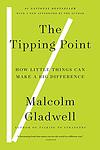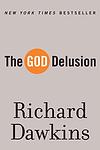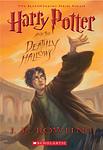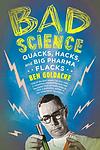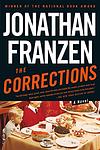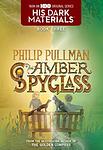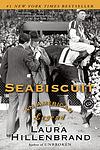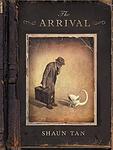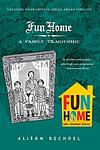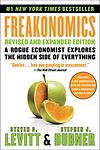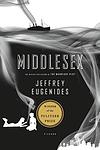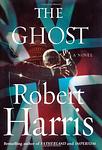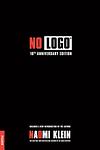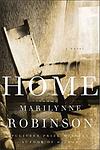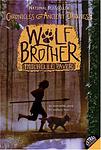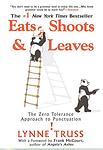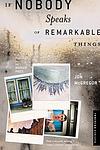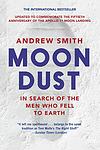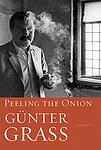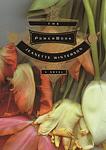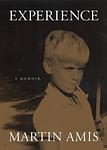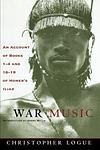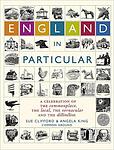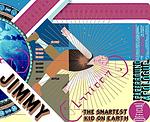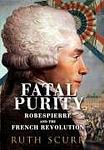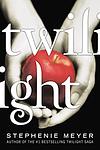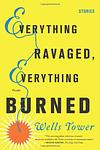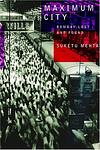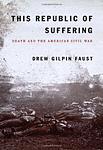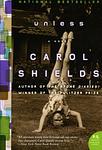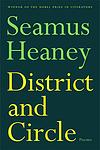The 100 Best Books of the Decade(2000)
This is one of the 284 lists we use to generate our main The Greatest Books list.
-
The Road by Cormac McCarthy
In a post-apocalyptic world, a father and his young son journey through a desolate landscape, struggling to survive. They face numerous threats including starvation, extreme weather, and dangerous encounters with other survivors. The father, who is terminally ill, is driven by his love and concern for his son, and is determined to protect him at all costs. The story is a haunting exploration of the depths of human resilience, the power of love, and the instinct to survive against all odds.
-
Persepolis by Marjane Satrapi
This graphic novel is a memoir that provides a personal account of the author's childhood and young adult years in Iran during and after the Islamic revolution. The story portrays the impact of war, political upheaval, and religious extremism on ordinary people, while also exploring themes of identity, resilience, and the power of storytelling. Despite the harsh realities the protagonist faces, the narrative also includes moments of humor and warmth, providing a nuanced view of life in Iran during this tumultuous period.
-
Dreams from My Father by Barack Obama
This memoir explores the life of a man who grew up in a multicultural family, with a Kenyan father and an American mother. The narrative delves into his early years in Hawaii and Indonesia, his self-discovery and racial awakening in Chicago, and his journey to Kenya to learn more about his father's heritage. The book provides an introspective look at the author's struggle with his racial identity, his relationship with his family, and his path to finding his place in the world.
-
Masterworks of the Classical Haida Mythtellers by Robert Bringhurst
"Masterworks of the Classical Haida Mythtellers" is a collection of stories from the Haida people, an indigenous group from the Pacific Northwest Coast of North America. The book provides a deep and insightful exploration of Haida mythology and culture through its rich oral literature. The author has painstakingly translated these tales from the original Haida language into English, maintaining their poetic and narrative essence. The collection serves as a significant contribution to the preservation and understanding of Haida cultural heritage and indigenous storytelling traditions.
-
Suite Française by Irène Némirovsky
"Suite Française" is a two-part novel set during the early years of World War II in France. The first part, "Storm in June," follows a group of Parisians as they flee the Nazi invasion. The second part, "Dolce," shows life in a small French village under German occupation. The novel explores themes of love, loss, and survival, and provides a unique perspective on life in France during the war. The book was written during the war but was not discovered and published until many years later.
-
The Tipping Point by Malcolm Gladwell
This book explores the concept of "tipping points," or the specific moment when an idea, trend, or social behavior crosses a threshold and spreads like wildfire. It delves into the science behind epidemics, both in terms of diseases and ideas, and dissects the factors that can cause a sudden shift in public consciousness. The author uses various case studies, from the sudden popularity of certain shoes to the decrease in New York City's crime rate, to illustrate these concepts.
-
Life of Pi by Yann Martel
A young Indian boy named Pi Patel survives a shipwreck and finds himself adrift in the Pacific Ocean on a lifeboat with a Bengal tiger named Richard Parker. Over the course of 227 days, Pi uses his knowledge of animal behavior and survival skills to coexist with the tiger, ultimately leading to an unusual and deeply spiritual journey. The story explores themes of faith, survival, and the interpretation of reality.
-
Payback: Debt and the Shadow Side of Wealth by Margaret Atwood
This book is an exploration of the concept of debt, both financial and moral, and its impact on individuals and societies. The author examines the historical, cultural, and moral implications of debt, drawing on a wide range of sources, from classical literature and modern economics to personal anecdotes. The book argues that our attitudes towards debt and wealth have a significant impact on our relationships, our societies, and our world, and calls for a re-evaluation of our attitudes towards debt and repayment.
-
Atonement by Ian McEwan
Atonement is a powerful novel that explores the consequences of a young girl's false accusation. The narrative follows the lives of three characters, the accuser, her older sister, and the sister's lover, who is wrongly accused. This false accusation irrevocably alters their lives, leading to the accused's imprisonment and eventual enlistment in World War II, while the sisters grapple with guilt, estrangement, and their own personal growth. The novel is a profound exploration of guilt, forgiveness, and the destructive power of misinterpretation.
-
The Da Vinci Code by Dan Brown
This thriller novel follows symbologist Robert Langdon and cryptographer Sophie Neveu as they investigate a murder in the Louvre Museum in Paris. The murder leads them to a trail of clues hidden in the works of Leonardo da Vinci, revealing a religious mystery protected by a secret society for two thousand years. The mystery involves a conspiracy within the Catholic Church and threatens to overturn the foundations of Christianity.
-
War and Peace by Leo Tolstoy
Set in the backdrop of the Napoleonic era, the novel presents a panorama of Russian society and its descent into the chaos of war. It follows the interconnected lives of five aristocratic families, their struggles, romances, and personal journeys through the tumultuous period of history. The narrative explores themes of love, war, and the meaning of life, as it weaves together historical events with the personal stories of its characters.
-
A Heartbreaking Work of Staggering Genius by Dave Eggers
A Heartbreaking Work of Staggering Genius is a memoir that follows the life of a young man who, after the cancer-related deaths of his parents, is tasked with raising his 8-year-old brother. The book explores themes of death, family, and the responsibilities that come with sudden adulthood. It is a testament to the strength of the human spirit, showcasing the protagonist's journey through grief, financial struggles, and the challenge of raising a child, all while trying to navigate his own young adulthood.
-
Austerlitz by W. G. Sebald
The novel follows the story of Jacques Austerlitz, an architectural historian who was brought to England on a Kindertransport from Czechoslovakia during World War II. As an adult, Jacques embarks on a journey to uncover his past, including his original identity, his parent's fate, and his own lost history. The narrative is a haunting exploration of memory, identity, and the lasting impact of the Holocaust.
-
Reading Lolita in Tehran by Azar Nafisi
The book is a memoir that takes place in Iran from 1979 to 1997, during the Islamic Revolution and the Iran-Iraq War. The story focuses on a professor who secretly gathers seven of her most committed female students to read forbidden Western literature in her home. As they read and discuss works by authors such as F. Scott Fitzgerald, Jane Austen, and Vladimir Nabokov, they explore their personal dreams and the losses they suffered due to the political, social, and cultural climate of the time.
-
The God Delusion by Richard Dawkins
This book is a well-known critique of religion, arguing that belief in a supernatural creator significantly lacks empirical evidence. The author asserts that faith encourages wars and fosters fanaticism. He also challenges the idea that morality can only come from religion, suggesting instead that humans possess innate empathy and cooperation. The book also explores the roots of religion, explaining its evolution as a byproduct of our tendency to assign agency to inanimate objects and forces. Ultimately, the author encourages atheism and a sense of awe derived from science and the natural world.
-
Rapture by Carol Ann Duffy
"Rapture" is a collection of love poems that explore the highs and lows of passionate love. The poems are deeply emotional and personal, capturing the intensity of love, the pain of heartbreak, and the healing power of time. The author uses beautiful and evocative language to convey the depth of her feelings, creating a powerful and moving portrayal of love in all its forms.
-
Harry Potter and the Deathly Hallows by J. K Rowling
In the final installment of this popular series, the protagonist and his friends decide to leave their school to complete the mission left to them by their late headmaster - to destroy the remaining pieces of the antagonist's soul, hidden in various objects. As they journey through the wizarding world, they uncover the truth about the antagonist's past and the legend of the Deathly Hallows. Amidst the escalating war, they are captured and narrowly escape, leading to the ultimate battle at their school where many lives are lost. The protagonist learns he must sacrifice himself to truly defeat the antagonist, but is given a second chance at life and finally triumphs, ending the war. The story concludes with a glimpse into the peaceful future they have all earned.
-
Bad Science by Ben Goldacre
This book exposes the ways in which the media and advertisers manipulate and misrepresent science, leading to public misconceptions and confusion. The author, a doctor and science journalist, provides a critical examination of the pseudoscience behind popular health fads, cosmetics, and alternative medicine, while also critiquing the misuse of statistics and flawed studies. The book serves as a guide to understanding the scientific method and how to discern good science from bad, aiming to promote scientific literacy among the general public.
-
The Corrections by Jonathan Franzen
The novel revolves around the lives of the Lambert family, an old-fashioned midwestern couple and their three adult children. The parents, Alfred and Enid, are dealing with Alfred's Parkinson's disease and their own marital problems, while their children are each facing their own personal and professional crises. The narrative explores the themes of family dynamics, societal expectations, and the struggles of modern life. The story climaxes with the family's last Christmas together at their childhood home.
-
White Teeth by Zadie Smith
This novel follows the lives of two friends, a working-class Englishman and a Bangladeshi Muslim, living in London. The story explores the complex relationships between people of different races, cultures, and generations in modern Britain, with themes of identity, immigration, and the cultural and social changes that have shaped the country. The narrative is enriched by the characters' personal histories and the historical events that have shaped their lives.
-
The Plot Against America by Philip Roth
This novel presents an alternate history where aviator-hero and rabid isolationist Charles Lindbergh is elected President in 1940, leading the United States towards fascism and anti-Semitism. The story is narrated through the perspective of a working-class Jewish family in Newark, New Jersey, experiencing the political shift and its terrifying consequences. The narrative explores themes of prejudice, fear, patriotism, and family bonds under the shadow of a fascist regime.
-
The Amber Spyglass by Philip Pullman
The final installment in a fantasy trilogy, this novel follows the young protagonists as they continue their journey through parallel universes. They find themselves in the world of the dead, where they lead a rebellion against the oppressive authorities. Meanwhile, celestial forces are gathering for a final, apocalyptic battle. The young heroes must also confront their own destiny, which is tied to a mysterious object known as the amber spyglass. The story explores themes of love, sacrifice, and the nature of consciousness.
-
The 9/11 Commission Report by 9/11 Commission
This book is a comprehensive, detailed account of the events leading up to the September 11, 2001 terrorist attacks on the United States, the attacks themselves, and the immediate aftermath. It was compiled by a bipartisan commission and offers an in-depth analysis of the systemic failures that allowed these attacks to occur. The report also provides recommendations for preventing future terrorist attacks, emphasizing the need for improved intelligence and security measures.
-
Never Let Me Go by Kazuo Ishiguro
The novel is a haunting tale of three friends, who grow up together at a seemingly idyllic English boarding school. As they mature, they discover a dark secret about their school and the purpose of their existence, which is to become organ donors for the rest of society. The story is a profound exploration of what it means to be human, the morality of scientific innovation, and the heartbreaking reality of love and loss.
-
The Curious Incident of the Dog in the Night-time by Mark Haddon
This novel follows a 15-year-old boy with autism as he tries to solve the mystery of who killed his neighbor's dog. Along the way, he uncovers other secrets about his family and must navigate the world using his unique perspective and abilities. The book offers an insightful look into the mind of a character with autism, highlighting his struggles and triumphs in a compelling and empathetic way.
-
Bad Blood by Lorna Sage
"Bad Blood" is a memoir about a woman's escape from a repressive childhood in post-WWII Britain. The author recounts her experiences growing up in a dysfunctional family with a philandering vicar for a grandfather and a depressed and distant mother. Despite the bleak surroundings, she manages to find solace in literature and education, ultimately earning a scholarship to university. The book is a testament to the transformative power of education and the author's fierce determination to escape her past.
-
Oxford English Dictionary by Oxford University Press
This book is a comprehensive and authoritative resource that provides definitions, etymology, and pronunciation for more than half a million English words. It is widely regarded as the accepted authority on the English language. The dictionary includes words from across the English-speaking world and from all areas of human knowledge, and is continually updated to reflect the evolution of the language.
-
The Rest is Noise by Alex Ross
"The Rest is Noise" is a comprehensive exploration of 20th-century classical music, examining the social, political, and cultural contexts that influenced its development. It provides a detailed study of the works of renowned composers, their inspirations, and their impact on the musical world. The book also explores the ways in which classical music has intersected with major events and movements of the 20th century, including two World Wars, the Cold War, and the rise of totalitarian regimes.
-
The Accidental by Ali Smith
The novel centers around a woman named Amber who unexpectedly arrives and disrupts the lives of the Smart family while they are on summer holiday in Norfolk. Each family member - Eve, a writer, Michael, a university professor, and their children Astrid and Magnus - experience unique interactions with Amber, causing them to question their own realities. The mysterious woman's influence forces the family to confront their secrets, insecurities, and the false narratives they've created about themselves.
-
The Kite Runner by Khaled Hosseini
This novel is a powerful story set against the backdrop of tumultuous events in Afghanistan, from the fall of the monarchy through the Soviet invasion and the rise of the Taliban regime. It follows the life of a wealthy boy and his best friend, a servant's son, their shared love for kite flying, and a terrible incident that tears their lives apart. The narrative explores themes of guilt, betrayal and redemption as the protagonist, now an adult living in America, is called back to his war-torn homeland to right the wrongs of his past.
-
The Collected Stories of Amy Hempel by Amy Hempel
The book is a compilation of short stories that delve into the human experience, exploring themes such as love, loss, and life's many complexities. The author's unique narrative style and sharp wit are apparent throughout, as she crafts characters and situations that are both deeply relatable and profoundly moving. Her stories range from darkly humorous to deeply tragic, and each one offers a unique perspective on the human condition.
-
Everything Is Illuminated by Jonathan Safran Foer
The novel is a richly layered narrative about a young man's quest to find the woman who saved his grandfather from the Nazis during World War II. The story is told from two perspectives: a Ukrainian translator with a unique grasp on the English language and the young man himself who is also a budding writer. The book explores themes of memory, history, and the power of storytelling, all set against the backdrop of a tragic and tumultuous period in world history.
-
Chronicles: Volume One by Bob Dylan
"Chronicles: Volume One" is an autobiography that takes readers on a journey through the life of a renowned musician and lyricist. The book provides an intimate look into his early years, his rise to fame, and his struggles and triumphs along the way. The author's unique narrative style and vivid storytelling bring to life the various experiences that shaped his music and his perspective on life. The book also provides a glimpse into the music industry, the cultural changes of the 1960s, and the author's creative process.
-
Seabiscuit by Laura Hillenbrand
The book is a captivating non-fiction tale about a small, knobby-kneed racehorse named Seabiscuit, who, against all odds, becomes a champion in the 1930s. The narrative also focuses on the people around Seabiscuit - the owner, trainer, and jockey - who help him overcome obstacles and reach his full potential. The story is set during the Great Depression and serves as a symbol of hope and resilience, resonating with many Americans at the time.
-
The Arrival by Shaun Tan
"The Arrival" is a wordless graphic novel that tells the story of a man who leaves his troubled homeland to seek a better life in an unknown country. The man's journey is filled with strange, surreal experiences as he navigates a new culture, language, and way of life, all while missing his family. The book explores themes of immigration, displacement, and hope in a beautifully illustrated, silent narrative.
-
How I Live Now by Meg Rosoff
A 15-year-old New Yorker is sent to live with her eccentric British cousins on a remote farm in England, where she falls in love with her cousin. Their idyllic summer is shattered when war breaks out and the country falls under martial law. The protagonist must learn to survive in this brutal new world, while also grappling with love, loss, and the complexities of adolescence.
-
William Trevor: The Collected Stories by William Trevor
This collection brings together numerous short stories from a renowned author, demonstrating his masterful storytelling ability. The stories span a variety of themes and settings, often focusing on the complexities of human relationships and the subtle nuances of everyday life. The author's keen eye for detail and ability to capture the human condition in his works have earned him a place among the greatest short story writers.
-
The Noonday Demon by Andrew Solomon
"The Noonday Demon" is a comprehensive exploration of depression, drawing on the author's own struggle with the illness and interviews with fellow sufferers, doctors, and scientists, drug designers, and philosophers. It examines depression in personal, cultural, and scientific terms, covering aspects like the complexities of different treatments and the impact of the disease on various demographic populations. The book also delves into the thorny moral and ethical questions posed by emerging biological explanations for mental illness.
-
Runaway by Alice Munro
"Runaway" is a collection of short stories that explore the depth of human relationships, the complexities of love, and the consequences of life's unpredictable turns. The stories revolve around women of varying ages and circumstances, each dealing with her own unique situation. Some are escaping from their past or present situations, while others are struggling to find their place in the world. The narratives delve into themes like betrayal, loss, and the often complicated dynamics between parents and children, and husbands and wives.
-
Sir Gawain and the Green Knight by Simon Armitage
The book is a modern translation of a 14th century alliterative poem, which tells the story of Sir Gawain, a knight of King Arthur's Round Table. The story begins when a mysterious Green Knight arrives at Arthur's court, challenging the knights to a beheading game. Gawain accepts the challenge and beheads the Green Knight, who surprisingly survives and tells Gawain to seek him out a year later to return the blow. The book follows Gawain's journey, filled with trials and temptations, as he tries to fulfill his promise to the Green Knight, maintaining his honor and chivalry.
-
The Secret Scripture by Sebastian Barry
"The Secret Scripture" is a deeply moving tale of Roseanne McNulty, a centenarian who has spent most of her life in a mental institution in Ireland. As the institution is about to be demolished, her psychiatrist Dr. Grene must determine whether she's fit to be released. As he delves into her past, Roseanne reveals her life story through a secret memoir she's been writing. The narrative alternates between Roseanne's recollections and Dr. Grene's observations, revealing a tragic and complex history of Ireland's social and political changes, while also exploring themes of memory, identity, and sanity.
-
Fun Home: A Family Tragicomic by Alison Bechdel
The graphic memoir revolves around the author's childhood and youth in rural Pennsylvania, United States, in the backdrop of a dysfunctional family. The story particularly focuses on her complex relationship with her closeted gay father, who was an English teacher, a funeral home director, and a historic home restorer. The narrative is non-linear, exploring themes of sexuality, gender roles, suicide, emotional abuse, and the role of literature in understanding oneself and one's family.
-
Thursbitch by Alan Garner
The book follows two parallel narratives. The first is set in the 18th century, focusing on a packman named Jack Turner who is mysteriously found dead in the valley of Thursbitch. The second narrative is set in the present day, where a woman named Sal and her friend Ian explore the same area, finding themselves mysteriously drawn to the mystery of Jack's death. The narratives intertwine as the boundaries between past and present blur, revealing the mystical and spiritual significance of the valley. The story explores themes of time, memory, and the enduring power of place.
-
Freakonomics by Steven D. Levitt, Stephen J. Dubner
This book explores the hidden side of everything, debunking conventional wisdom and revealing surprising connections between seemingly unrelated things. It uses economic theories to explain social phenomena such as the decrease in crime rates in the 1990s, the impact of a person's name on their life outcomes, and the inner workings of drug gangs. By using data and statistics, it challenges the way people think about the world and encourages them to question the accepted truths in society.
-
London: The Biography by Peter Ackroyd
This book is a comprehensive exploration of the city of London, from its ancient origins to the modern era. The author delves into the city's rich history, culture, and unique character, examining its evolution through various lenses such as crime, religion, commerce, education, and entertainment. The narrative is brought to life with fascinating anecdotes, vivid descriptions, and a wealth of historical detail, providing an immersive and engaging portrait of one of the world's most iconic cities.
-
Middlesex by Jeffrey Eugenides
The book follows the life of Calliope Stephanides, a Greek-American hermaphrodite, who narrates her epic story starting from her grandparents' incestuous relationship in a small village in Asia Minor to her own self-discovery in 20th century America. The novel delves into themes of identity, gender, and the American dream, while also providing a detailed history of Detroit through the eyes of three generations of an immigrant family.
-
Collected Poems of Ted Hughes by Ted Hughes
This book is a compilation of the poetic works of a renowned British poet, known for his vivid, powerful language and raw emotion. It spans his entire career, from his first collection to his last, showcasing his evolution as a writer. His poems often explore themes of nature, mythology, and the human condition, reflecting his deep connection to the natural world and his insightful observations on life and death. The collection serves as a comprehensive testament to his remarkable talent and enduring influence in the world of poetry.
-
A Short History Of Nearly Everything by Bill Bryson
This book is a comprehensive exploration of scientific knowledge, covering a wide range of topics from the Big Bang to the rise of civilization. The author aims to understand how we got from nothing at all to where we are now, exploring subjects such as geology, chemistry, paleontology, astronomy, and particle physics. The book also delves into the lives of the scientists behind the discoveries, making the complex concepts accessible to the average reader.
-
The Ghost by Robert Harris
"The Ghost" is a suspenseful political thriller that revolves around a ghostwriter who is hired to finish the memoirs of a former British Prime Minister. As he delves into the politician's life, he uncovers secrets that put his own life in danger. The book explores themes of power, corruption, and the blurred lines between truth and fiction in a world of political spin.
-
No Logo by Naomi Klein
This book explores the negative effects of corporate branding and globalization. It critiques the marketing strategies of large corporations, arguing that they exploit workers and manipulate consumers. The author also discusses how these corporations have a significant influence on culture and public space. The book suggests that consumer activism and grassroots movements can serve as effective counter-forces to corporate power.
-
Home by Marilynne Robinson
"Home" is a deeply emotional narrative that explores the themes of faith, redemption, and the complexity of family relationships. The story revolves around the Boughton family, particularly the prodigal son, Jack, who returns home after twenty years. His struggle to fit into the family and society, and his sister Glory's attempts to help him, form the crux of the story. The book delves into their past, revealing secrets and regrets, and provides a profound reflection on love, loss, and forgiveness.
-
Youth by J M Coetzee
"Youth" is a semi-autobiographical novel centered around a young man who leaves his homeland of South Africa for London in the 1960s, hoping to escape his oppressive and dull life. He seeks to immerse himself in the world of art and literature, yearning for a profound and transformative experience. However, he struggles to find his place in this new world, grappling with loneliness, unfulfilling jobs, and failed relationships. The book explores themes of alienation, the search for identity, and the disillusionment of youth.
-
Wolf Brother by Michelle Paver
This gripping tale follows a 12-year-old boy and his wolf cub companion as they embark on a perilous journey in the prehistoric wilderness. Their mission is to fulfill a promise to his dying father by finding and destroying a demon-possessed bear that threatens their world. Along the way, they must navigate treacherous terrains, confront supernatural forces, and learn to trust each other in order to survive. The story is a compelling blend of adventure, survival, and the bond between human and animal.
-
Eats, Shoots and Leaves by Lynne Truss
This book is a humorous, yet educational, exploration of punctuation in the English language. The author uses wit and sarcasm to highlight the importance of correct punctuation, demonstrating how it can drastically change the meaning of a sentence. It provides examples of punctuation errors and their hilarious consequences, while also offering practical advice on how to avoid such mistakes. The book is a spirited call to arms for grammar enthusiasts, emphasizing the necessity of preserving the clarity and precision in writing that proper punctuation provides.
-
Imperial Life in the Emerald City by Rajiv Chandrasekaran
"Imperial Life in the Emerald City" provides an in-depth look at the American occupation of Iraq, focusing on the Green Zone in Baghdad, which served as the U.S. headquarters. The book reveals how the U.S. administration was ill-prepared for the task of rebuilding Iraq, and how their lack of understanding about the country and its culture led to many mistakes and blunders. The author, through his first-hand accounts and interviews, paints a picture of a surreal, insulated world within the Green Zone, cut off from the harsh realities of the war-torn country outside.
-
If Nobody Speaks of Remarkable Things by Jon McGregor
The novel is a lyrical exploration of a single day in an ordinary British street, where the lives of the inhabitants are quietly observed and their personal stories are delicately unfolded. The narrative alternates between the past and the present, revealing a tragic event that has left a profound impact on one of the residents. The book is a meditation on the extraordinary within the mundane, the significance of the everyday, and the impact of pivotal events on ordinary lives.
-
Fleshmarket Close by Ian Rankin
In this gripping crime novel, a detective inspector based in Edinburgh, Scotland is working on multiple cases simultaneously. He investigates the murder of an illegal immigrant, the disappearance of a refugee, and the murder of a local gangster. As he delves deeper, he uncovers a web of corruption, political conspiracy, and human trafficking. Throughout the story, the inspector battles personal demons and navigates the complexities of the Scottish legal system.
-
Dart by Alice Oswald
"Dart" is a narrative poem that traces the journey of the River Dart in Devon, England, from its source to the sea. The poem is a vivid exploration of the river's natural and human environments, and the voices of the people who live and work along its banks. It is a celebration of the river's vitality and diversity, and a meditation on the complex interplay between nature and human activity.
-
Moondust: In Search of the Men Who Fell to Earth by Andrew Smith
This book is a poignant exploration of the experiences of the twelve men who walked on the moon between 1969 and 1972. The author travels across America to meet with the surviving astronauts, discussing their lives before, during, and after their lunar missions. The narrative also delves into the cultural and historical context of the moon landings, examining their impact on society and the astronauts' personal lives. The book is a blend of science, history, and personal reflection, offering a unique perspective on a pivotal moment in human history.
-
Collapse by Jared Diamond
"Collapse" is an exploration of why certain societies throughout history have thrived while others have deteriorated and collapsed. The book delves into environmental problems, climate change, rapid population growth, and unwise political decisions as factors that contribute to the downfall of a civilization. The author uses examples from history such as the Mayans, the Vikings in Greenland, and modern examples like Rwanda and Haiti, to illustrate his points. It serves as both a historical analysis and a warning for modern societies to learn from the past in order to avoid a similar fate.
-
The Line of Beauty by Alan Hollinghurst
Set in the 1980s during the era of Margaret Thatcher's conservative government in Britain, this novel follows the life of a young gay man named Nick Guest. Coming from a middle-class background, he moves into the home of his wealthy friend's family and becomes infatuated with the opulence and power of the upper class. As he navigates his way through this new world, he also explores his sexuality, all while dealing with the societal and political implications of the AIDS crisis.
-
Fingersmith by Sarah Waters
The novel is a gripping tale set in Victorian England, revolving around two young women, a petty thief and a rich heiress, whose lives intertwine in unforeseen ways. The thief is part of a con to defraud the heiress of her fortune, but as the plot thickens, the lines between deception and truth, loyalty and betrayal, love and manipulation get blurred. The narrative is filled with unexpected twists and turns, exploring themes of gender, sexuality, and class, and keeps the readers on the edge till the end.
-
The Blank Slate by Steven Pinker
"The Blank Slate" challenges the conventional belief that human behavior is largely shaped by the environment and experience, arguing instead that genetics play a significant role. The book delves into the controversies surrounding this concept, exploring the implications it has on politics, violence, child-rearing, and the arts. It also argues that acknowledging our innate traits can lead to a more humane society, as it would allow for a better understanding of our strengths, weaknesses, and individual differences.
-
Staying Alive by Neil Astley
"Staying Alive" is a comprehensive anthology of contemporary poetry that explores the human condition and our shared experiences. The compilation features a diverse range of voices and styles from poets around the globe, with a particular focus on works that reflect on life's trials, tribulations, and triumphs. Through the power of poetry, the book seeks to inspire, provoke thought, and provide comfort, making it a relatable and accessible read for both poetry enthusiasts and newcomers alike.
-
Peeling the Onion by Günter Grass
"Peeling the Onion" is a memoir that explores the author's experiences during and after World War II. The author, a Nobel laureate, reveals his involvement with the Waffen SS, a paramilitary organization of the Nazi party, when he was a teenager. The book delves into the author's struggle with guilt and memory, his journey to becoming a writer, and his exploration of how personal and collective memory impact our understanding of history. It is a candid, introspective look at the complexities of identity, morality, and truth.
-
Cloud Atlas by David Mitchell
This novel is a unique blend of six different stories, each set in a different time and place, spanning from the 19th century South Pacific to a post-apocalyptic future. Each tale is written in a different style, reflecting the time and setting it represents, and they are all connected through shared themes and recurring motifs. The stories are nested within each other, with each interrupted by the next, only to be concluded in the second half of the book. The novel explores themes of predacity, civilization, reincarnation and the eternal recurrence of the same behaviors throughout history.
-
The Kindly One by Jonathan Littell
"The Kindly Ones" is a controversial and provocative novel that follows the life of a former SS officer, who is of French and German descent, during and after World War II. The narrative is a first-person account of the atrocities he committed and witnessed during the Holocaust, presenting a chilling exploration of the human capacity for evil. The story also delves into his post-war life, his struggle with guilt, and his attempts to rationalize his actions. The novel is a profound and disturbing examination of the darkest aspects of human nature, history, and memory.
-
Out Stealing Horses by Per Petterson
The novel is a poignant exploration of a man's relationship with his father and his own identity. Set in Norway, it follows the protagonist's decision to live in solitude after the death of his wife and sister. Through a series of flashbacks, he recalls his childhood, particularly the summer of 1948 when he lived with his father in the country. As he delves into his past, he uncovers his father's involvement in the resistance during World War II and the lasting impact it had on their relationship and his own life. The narrative intertwines the past and the present, reflecting on themes of loss, betrayal, and the complexity of human relationships.
-
My Name is Red by Orhan Pamuk
Set in the late 16th century Ottoman Empire, this novel explores the conflict between East and West, tradition and innovation, through the lens of miniaturist painters. When a renowned artist is murdered, his colleagues must solve the mystery while grappling with the changes in their art brought about by the western Renaissance. This complex narrative intertwines love, art, religion, and power, offering a deep exploration of the struggles between old and new.
-
The PowerBook by Jeanette Winterson
"The PowerBook" is a unique blend of reality and virtual reality, exploring the themes of love, identity, and storytelling. The narrative follows an e-writer who writes stories for people on demand, and one of her clients, a woman who wants to escape her relationship and start anew. The book is filled with stories within stories, all of them interconnected, taking readers on a journey through Paris, Capri, and the Internet, while challenging the traditional notions of time, gender roles, and the boundaries between the real and the imagined.
-
Experience by Martin Amis
"Experience" is a memoir which delves into the author's life, exploring his relationships with his family, friends, and his own self. The narrative is a candid reflection on his father's influence, his friendships with other writers, his marriages, and his children. The author also discusses his experiences with fame, age, and loss, providing an intimate look into his personal and professional journey. The memoir is a blend of the author's unique humor, sharp observations, and poignant moments, offering a compelling and deeply personal narrative.
-
True History of the Kelly Gang by Peter Carey
This historical novel is a fictionalized account of the life of Australian outlaw Ned Kelly, told in the form of a journal written to his daughter. The narrative explores Kelly's life from childhood, his family's struggles with poverty and the law, his involvement in horse thievery, and his eventual formation of the Kelly Gang. The story culminates with the gang's infamous standoff with the police at Glenrowan, providing a humanizing perspective on a figure often portrayed as a ruthless criminal.
-
Blind Willow, Sleeping Woman by Haruki Murakami
"Blind Willow, Sleeping Woman" is a collection of 24 short stories that explore themes of love, loneliness, and loss, set against the backdrop of everyday life in Japan. The stories often blur the lines between reality and the surreal, featuring characters who find themselves in strange, dreamlike situations. The tales range from a man whose reflection takes on a life of its own, to a woman who falls asleep for weeks at a time, reflecting the author's signature blend of the mundane and the mystical.
-
War Music by Christopher Logue
"War Music" is a modernist adaptation of Homer's "Iliad," retelling the epic tale of the Trojan War in contemporary language. The narrative focuses on the final weeks of the ten-year war, highlighting the intense conflict between the Greek hero Achilles and the Trojan prince Hector. The book features vivid and imaginative descriptions of battles, and the characters are portrayed with psychological depth, making the ancient story accessible and engaging for modern readers.
-
The Damned Utd by David Peace
This novel provides a fictionalized account of the infamous 44-day period in 1974 when Brian Clough was the manager of Leeds United, a top-flight English football club. Told from Clough's perspective, the narrative alternates between his time at Leeds and his earlier successful period managing Derby County. The story explores Clough's obsessive rivalry with Don Revie, the previous manager of Leeds, and his struggles to gain the respect of the Leeds players, ultimately leading to his dismissal.
-
England in Particular by Sue Clifford, Angela King
This book is a celebration of the distinctive and diverse aspects of England, from local customs and crafts to architecture and wildlife. It offers a comprehensive guide to the peculiarities of the English landscape and culture, providing an in-depth exploration of the uniqueness of the country's towns, villages, and countryside. The book is filled with fascinating facts, anecdotes, and descriptions, making it a delightful read for anyone interested in English heritage.
-
Collected Poems of Michael Donaghy by Michael Donaghy
This book is a compilation of the acclaimed poet's works, showcasing his mastery in blending traditional and modern forms of poetry. It explores various themes such as love, mortality, music, and the complexities of human relationships. The author's unique style, wit, and emotional depth are evident throughout the collection, making it a significant contribution to contemporary poetry.
-
Giving up the Ghost by Hilary Mantel
"Giving up the Ghost" is a memoir that explores the author's life from her childhood in northern England, her struggles with chronic illness, to her journey as a successful writer. The book delves into her complex relationship with her parents, her experience with the supernatural, her struggle with endometriosis, and her exploration of her own identity. The narrative is a poignant exploration of the author's life, filled with introspection, humor, and resilience.
-
Jimmy Corrigan, the Smartest Kid on Earth by Chris Ware
The book is a graphic novel that tells the story of Jimmy Corrigan, an awkward and lonely man in his mid-thirties. Jimmy has lived his entire life under the thumb of his overbearing mother. When he receives a letter from his estranged father, whom he has never met, he embarks on a journey that takes him from his home in Chicago to a small town in Michigan. Along the way, the narrative delves into the lives of his ancestors, revealing a history of loneliness and disappointment that seems to be repeating itself in Jimmy's own life.
-
The White Tiger by Aravind Adiga
"The White Tiger" is a darkly humorous novel set in modern-day India that explores the country's class struggle through the eyes of an ambitious and cunning protagonist. Born in a poor village, he moves to Delhi to work as a chauffeur for a rich family. He eventually breaks free from his life of servitude by committing an act of shocking violence, and uses his newfound freedom to become a successful entrepreneur in Bangalore. The story, told through a series of letters written to the Chinese Premier, is a scathing critique of India's social and economic disparities, and the corruption that permeates all levels of society.
-
The Emperor's Children by Claire Messud
This novel follows the lives of three friends in their thirties living in New York City in the months leading up to and following the September 11 attacks. All children of privilege, they struggle with their careers, love lives, and identities against the backdrop of a changing world. The narrative explores themes of entitlement, disillusionment, and the often complicated nature of adult friendships.
-
Born Yesterday by Gordon Burn
"Born Yesterday" is a unique take on the events of 2007, using them to reflect on the state of Britain. The book examines the disappearance of Madeleine McCann, the floods that swept Britain, and the transition of power from Tony Blair to Gordon Brown. The author blends fact and fiction, creating a hybrid novel that offers a snapshot of a nation in transition and crisis, exploring themes of celebrity, power, and tragedy.
-
Fatal Purity: Robespierre and the French Revolution by Ruth Scurr
This book provides a comprehensive biography of Maximilien Robespierre, a significant figure in the French Revolution. It explores his life, political ideologies, and the role he played in the Reign of Terror. The author presents a balanced view of Robespierre, highlighting both his idealistic vision for a democratic society and the violent means he employed to achieve it. The book also delves into the tumultuous period of the French Revolution, giving readers a detailed understanding of its events and dynamics.
-
The Enchantress of Florence by Salman Rushdie
This novel intertwines the history of the Mughal Empire in India and Renaissance Florence through the journey of a yellow-haired stranger who claims to be a lost relative of the Mughal Emperor, Akbar the Great. The stranger tells a tale of a hidden princess, a woman known only as the Lady Black Eyes who possesses magical powers and whose story involves a great artist and the notorious warlord, Argalia. The plot explores themes of power, love, and identity while blending history, mythology, and magic in a richly layered narrative.
-
Twilight by Stephenie Meyer
A high school girl moves to a small town in Washington where she falls in love with a mysterious classmate who is revealed to be a vampire. This revelation puts her in danger as other vampires pose a threat to her life. The book explores their complicated relationship, as well as the difficulties they face due to his supernatural nature.
-
My Father and other Working-Class Football Heroes by Gary Imlac
The book is a poignant memoir about a professional football player in the 1950s and 1960s, as told by his son. It explores the harsh realities of the football world during this era, including low wages, lack of security, and the stark contrast to the glamorous, high-earning industry it is today. The narrative also delves into the author's personal journey of discovering his father's football career after his death, revealing a touching and personal portrayal of a father-son relationship.
-
Everything Ravaged, Everything Burned by Wells Tower
"Everything Ravaged, Everything Burned" is a collection of nine short stories that delve into the lives of various characters, each grappling with their own unique struggles. The narratives range from a man dealing with the end of his marriage to a Viking raider longing for retirement, and each story is imbued with a dark humor and a keen insight into the human condition. The author's vivid and descriptive storytelling brings the characters and their predicaments to life, making for a compelling and thought-provoking read.
-
The Ascent of Money: A Financial History of the World by Niall Ferguson
This book provides a comprehensive history of money, credit, and banking, tracing their evolution from ancient times to the present. It explores how financial systems have shaped human history, from the rise and fall of empires to the development of modern economies. The book delves into the origins of the stock market, the true nature of insurance, the perils of inflation, the importance of property rights, and the role of financial innovation in economic growth. It also examines the causes and consequences of financial crises, offering valuable insights into the complex relationship between finance and society.
-
Maximum City: Bombay Lost and Found by Suketu Mehta
This book offers a comprehensive exploration of Mumbai (formerly known as Bombay), one of the world's largest and most complex cities. The author weaves together personal experiences, interviews and observations to paint a vivid picture of the city's diverse inhabitants and their daily lives. The narrative delves into the city’s underworld, its entertainment industry, its religious tensions, and its political landscape, providing an in-depth look at the dichotomies of wealth and poverty, modernity and tradition, and order and chaos that define Mumbai.
-
This Republic of Suffering: Death and the American Civil War by Drew Gilpin Faust
This book examines how the Civil War's unprecedented death toll changed American society, politics, and culture. It explores how the nation grappled with the sheer mass of the dead, the logistics of their burial and mourning, and the profound impact on religious beliefs and practices. It also discusses how the war shaped the nation's understanding of life insurance, pensions, and the role of the federal government in citizens' lives. The book argues that the Civil War transformed how Americans understand death and the value of a human life.
-
Unless by Carol Shields
The novel is a narrative about a middle-aged, successful writer who is grappling with the sudden and inexplicable decision of her eldest daughter to drop out of college and live on the streets. The daughter communicates only one word, "Goodness", which she writes on a cardboard sign. The story explores the protagonist's struggle to understand her daughter's choice, while also delving into themes of feminism, the nature of goodness, and the power of words.
-
Berlin: The Downfall, 1945 by Antony Beevor
The book provides a detailed account of the final months of World War II, focusing on the Battle of Berlin. It chronicles the brutal and chaotic fall of Berlin, the capital of the Third Reich, to the Soviet Red Army in 1945. The narrative presents a grim picture of the atrocities committed by both the German and Soviet forces, the mass suicides by the German populace, and the horrific conditions of the city during the siege. It also explores the political maneuvers behind the scenes, offering insights into the decisions and actions of key figures like Hitler, Stalin, and Churchill.
-
District and Circle by Seamus Heaney
"District and Circle" is a collection of poems that explores themes of memory, loss, and the passage of time. The poet uses vivid imagery and lyrical language to evoke a sense of place and history, often drawing on his own experiences growing up in rural Ireland. The poems range in subject matter from personal reflections to broader social and political commentary, providing a nuanced and deeply felt exploration of the human condition.
-
The Carhullan Army by Sarah Hall
In a dystopian future, England has been devastated by economic collapse and climate change, and is now under the control of an authoritarian regime. The protagonist, known only as Sister, escapes from her life of forced labor and her loveless marriage to join a self-sustaining, all-female community in the remote hills of Cumbria. This community, known as the Carhullan Army, trains rigorously in both survival skills and combat, preparing for a rebellion against the oppressive government. Sister's life in the community and her eventual rise to leadership form the core of the story, which explores themes of freedom, gender, and the human spirit's resistance to tyranny.
-
The Emperor's Babe by Bernardine Evaristo
This novel tells the story of a young Sudanese girl, Zuleika, who is married off at the age of 11 to a rich, older Roman businessman in Londinium, 211 AD. Despite the luxuries her marriage affords her, Zuleika feels trapped and yearns for real love and freedom. The narrative takes a turn when she meets and falls in love with the Roman Emperor, a relationship that brings her joy but also puts her in grave danger. The book is a vivid portrayal of ancient Rome, with its mix of cultures, and explores themes of love, freedom, and the struggles of a woman in a patriarchal society.
-
The Looming Tower by Lawrence Wright
"The Looming Tower" is a comprehensive historical examination of the events leading up to the 9/11 terrorist attacks on the United States. It delves into the origins of Al-Qaeda, the rise of Osama bin Laden, and the failure of U.S. intelligence agencies to prevent the attacks. The narrative is extensively researched and provides a detailed account of Islamic fundamentalism, the complex politics of the Middle East, and the role of the United States in the region. The book also explores the personal stories of key figures on both sides of the conflict.
-
The Brief Wondrous Life of Oscar Wao by Junot Diaz
This novel tells the story of Oscar de Leon, an overweight Dominican boy growing up in New Jersey who is obsessed with science fiction, fantasy novels, and falling in love, but is perpetually unlucky in his romantic endeavors. The narrative not only explores Oscar's life but also delves into the lives of his family members, each affected by the curse that has plagued their family for generations. The book is a blend of magical realism and historical fiction, providing a detailed account of the brutal Trujillo regime in the Dominican Republic and its impact on the country's people and diaspora.
-
Half of a Yellow Sun by Chimamanda Ngozi Adichie
The novel is set in Nigeria during the Biafran War, exploring the impact of the conflict on the lives of its characters. The story is told from the perspective of three characters: a young houseboy, a radical university professor, and the professor's wealthy lover. The narrative delves into themes of love, race, and war, offering a vivid depiction of the horrors of conflict and the resilience of the human spirit.
-
The Lost Leader by Mick Imlah
"The Lost Leader" is a collection of poems that explore various aspects of British history and culture, with a particular focus on Scotland. The author uses a mix of traditional and modern forms to delve into topics such as the Jacobite Rebellion, the life of Alfred Lord Tennyson, and the Scottish national football team. The collection is noted for its wit, humor, and evocative descriptions, offering a unique perspective on the past and present of Britain.
-
The Position by Meg Wolitzer
"The Position" is a novel that explores the impact of a bestselling sex manual, written by a couple, on their four children. The book, published in the 1970s, includes explicit illustrations of the couple and becomes a cultural phenomenon. The narrative, spanning over three decades, delves into the lives of the children, their struggles with their parents' public sexual revelations, and how it affects their own relationships and identities as they grow into adulthood.
Times, 100 Books
The Time's list of the 100 Best Books of the 2000s. It's a mix of fiction and nonfiction.
Added about 10 years ago.
This list has a weight of 6%. To learn more about what this means please visit the Rankings page.
Here is a list of what is decreasing the importance of this list:
- Voters: no voter information
- List: only covers 10 years
- Voters: are mostly from a single country/location
If you think this is incorrect please e-mail us at [email protected].





